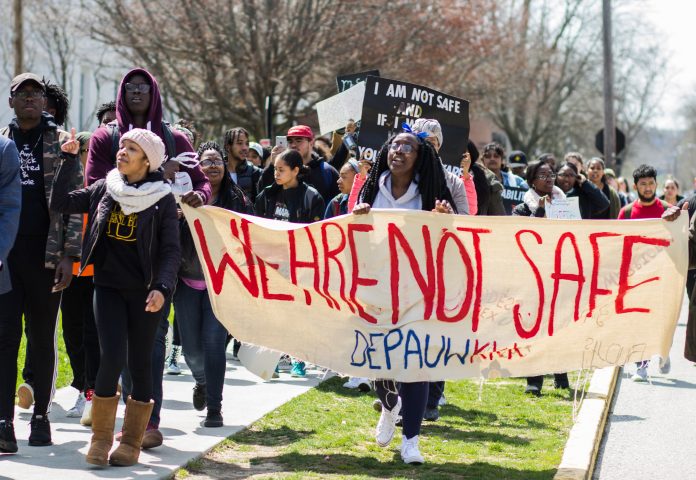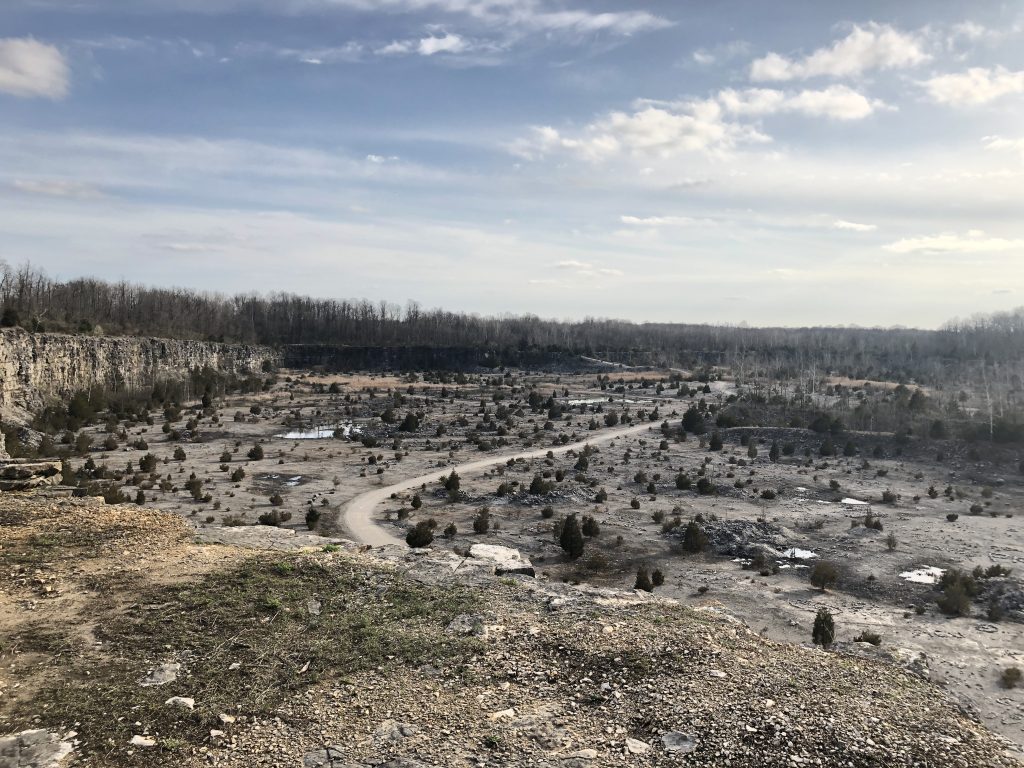

The start of a new academic year does not mean that the six bias incidents that took place last semester on DePauw’s campus are forgotten, but four out of the six remain unsolved.
The cases, however, are still open and Director of DePauw Public Safety Charlene Shrewsbury still hopes that somebody comes forward with information to help solve the four open cases.“So I’m going to go back to where I was last semester in April when this was all happening: somebody knows something,” Shrewsbury said.“I need it to weigh heavy on your heart.”
Last April, the University’s campus was faced with six reported bias incidents in a week. The first incident was “All N***** must die -KKK” found written in a restroom at the Fluttering Duck, reported on April 11.
On April 15, three bias incidents were reported, which included a homophobic and an anti-Semitic message also found in a restroom. The other two incidents reported that day have been solved. One incident was the n-word formed by rocks in the nature park, which an investigation headed by Public Safety and Greencastle Police Department led to the a tip that revealed it was Greencastle high schoolers who committed the act.
The other bias incident reported on April 15 was characterized as “a student engaging in offensive behavior” and occurred at The Fluttering Duck. In an April 18 news conference, Vice President of Student Academic Life Alan Hill identified the student as Ellie Locke, a then senior. Locke was sent to Community Standards, but the results of her hearing are unknown.
Two days later “a racist writing was found on a toilet seat in Harrison Hall,” according to an email to the DePauw community that day from Shrewsbury. The writing said “s*nd” and “n*****.” Following that incident, there was an anti-Chinese slur found on a toilet paper dispenser in Lucy Hall on April 18.
That the majority of the bias incidents were found in restrooms leads President Mark McCoy to believe that the unsolved bias incidents will remain unsolved. “We solved the ones we solved and the ones that are unsolved are likely to remain that way,” President McCoy said. “We are never going to keep people from writing in restrooms, we are never going to be able to solve that, but what we can do is come together as a community.”
While it is unclear whether it will be clear who committed each of the five bias incidents, there have been changes at the University in response to last April’s events.
After DePauw had more bias incidents reported in two weeks than a whole year, student activists on campus organized various demonstrations. The Association of African American Students (AAAS), which was one of the organizations that organized the demonstrations, gave a list of demands to the University.
The list ranged from restoring Day of Dialogue to a day focused around anti-racist pedagogy, creating committees that would focus on reformatting non racially inclusive policies on campus, and members of Greek fraternities and sororities receiving anti-racist training. While those demands are still in the work, a main demand that has been met was the establishment of a house for AAAS.
“[When there] most likely is another racial incident on campus, we have a space that is safe for us and can allow people to have fellowship, and to feel safe on a campus that in many ways statistically and figuratively is not safe,” president of AAAS Kaleb Anderson said.
AAAS previously had a house they were removed from because it needed renovations and were promised a new location; however, it wasn’t until this semester that the organization had its own house again. Anderson said that if a person wanted to know the current address of the house they should reach out to the organization.
“AAAS is very grateful for having the house, yes, but I’d like DePauw to remember that we have had a house before,” said Anderson. “This isn’t something that is special, this isn’t something that we are accepting as a hush gift to AAAS.”
The house still has issues, however, because only the tenants have swipe access and they are still lacking in furniture they requested to facilities.
Anderson emphasized that AAAS will continue to do the social and political work to ensure black students are supported on this campus. Whether the organization focuses on making sure AAAS’s demands are met and preparing for potentially other bias incidents, they will also be “cultivating that new home for black students on campus.”
